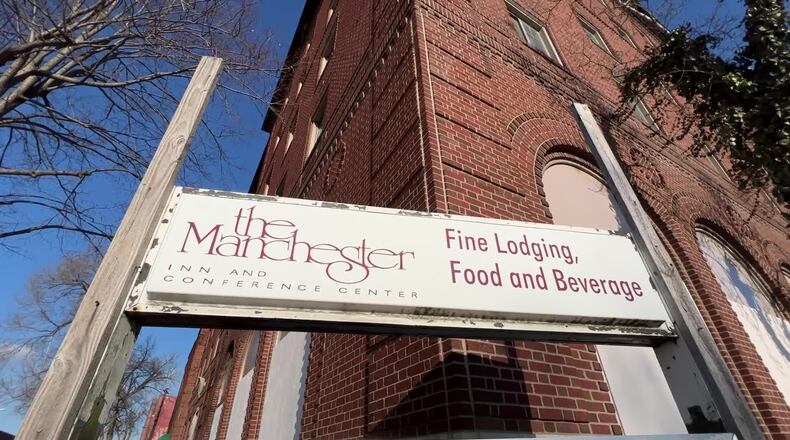Other properties: 101 N. Main St. (formerly the Snider Building), 2 N. Main St. (formerly First National Bank), 39 N. Broad St. (known as the Swallen’s lot) and 436 and 437 N. Broad St. (known collectively as the Smith Park lots.)
City Council also heard Tuesday night the first reading of an ordinance providing for the issuance and sale of notes in the maximum principal amount of $8 million in anticipation of the issuance of bonds for the purpose of paying the costs of the acquisition by the city of approximately 30 acres along Union Road and Ohio 122 for a multi-use development, demolition of existing structures and the design, engineering and construction of related and necessary public infrastructure.
Council will hear the second reading at its next meeting on May 2.
While the city will still own the six properties — considered by some to be the keys to downtown revitalization — developer Weyland Ventures will conduct preliminary research and draft concept plans for the properties.
Lisha Morlan, Middletown’s assistant economic director, said Weyland has a “great reputation and track record” and redeveloping the downtown properties will bring “new energy” to the city.
“Super excited,” Morlan said when asked her reaction after the meeting. “We are on the cusp on blossoming again.”
Weyland representatives will do a “deeper dive” into the best uses of the properties and empty lot, she said. They will talk to city officials and local residents to guard how to “fill those gaps” in amenities in the city, Morlan said.
Weyland also is authorized by the city to apply for historic tax credits and other incentives that might “facilitate” the redevelopment of the properties, according to documents.
During the duration of the pre-development/due diligence periods for each property, the city agrees to not sell the properties, it said. During these same time frames, Weyland is directed to complete necessary due diligence, site evaluation, and other pre-development work.
Before the end of each pre-development period, Weyland must present to the city development plans for each of the properties for its approval.
If the plans are approved Weyland can enter into a subsequent conveyance agreement with the city in exchange for its commitments to redevelop the sites.
Weyland’s first focus will be the Manchester/Snider sites with a 12-month due diligence/pre-development period. After the city considers the proposal, it and Weyland will have 18 months to enter into a final development agreement where Weyland will acquire the priority properties and start development.
Other deadlines: Twenty-four months after the agreement, Weyland must present concept plans for the First National Bank building and Swallen’s; then it will have 30 months to enter into a final development agreement; then 36 months after the effective date of this agreement, Weyland must present plans for the properties consisting of the North Broad Street corridor and Smith Park lots; then within 42 months enter into a final development agreement.
In regards to the East End development, the city entered into a purchase agreement to acquire about 30 acre at the southeast corner of Ohio 122 and Union Road for the planned development of those parcels and parcels already owned by the city that abut those parcels, according to city documents.
The original purchase price for the land was approximately $6.2 million.
But while conducting due diligence and site examination, the city determined a portion of the property was “undevelopable” and the seller agreed to a net reduction of about $500,000 whereby the city would purchase the entire property for the previously agreed to price, according to a staff report.
Then the city would simultaneously have a related business entity buy back the portion of the property in question, resulting in a net cost of approximately $5.7 million.
The legislation authorizes borrowing up to $8 million, well above the purchase price, city officials said. The additional amount is proposed to temporarily cover the cost of engineering design of the public improvements for the development of the site. These costs will be reimbursed by the planned issuance of TIF-backed bonds by the city later this year in conjunction with the commencement of development, according to Assistant City Manager Nathan Cahall.
The bonds will be dated about July 1, 2024 with an annual interest rate of 7%, payable semi-annually until the principal amount is paid, and are estimated to mature in 30 annual principal installments on Dec. 1 of each year. The first principal payment of the bonds is estimated to be Dec. 1, 2024.
About the Author


